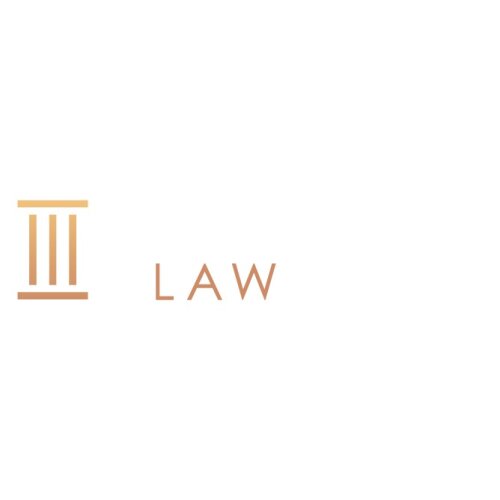Best Tax Lawyers in Sri Lanka
Share your needs with us, get contacted by law firms.
Free. Takes 2 min.
Or refine your search by selecting a city:
List of the best lawyers in Sri Lanka
About Tax Law in Sri Lanka
The tax system in Sri Lanka is governed by several key legislations, including the Inland Revenue Act, the Value Added Tax Act, and others pertaining to specific duties and levies. The government relies on these taxes to generate revenue for public expenditure. The primary types of taxes imposed on individuals and businesses include income tax, value-added tax (VAT), capital gains tax, and import duties. The Inland Revenue Department (IRD) is the main authority responsible for the administration and enforcement of tax laws in Sri Lanka.
Why You May Need a Lawyer
Understanding and complying with Sri Lanka's complex tax laws can be challenging. You may need legal advice in situations such as:
- Starting or managing a business and needing clarity on tax obligations.
- Disputing a tax assessment or dealing with penalties imposed by the IRD.
- Planning business operations or investments and requiring strategic tax planning to minimize liabilities.
- Facing audits or investigations by tax authorities.
- Resolving payroll and employee tax issues.
- Handling expatriate tax matters or cross-border tax planning.
Local Laws Overview
Sri Lanka's tax laws encompass several key aspects:
- Income Tax: This is levied on personal and corporate income, with varying rates based on income levels and sources.
- Value Added Tax (VAT): Typically applied to goods and services both imported and locally produced.
- Withholding Tax: Retained at the source on various payments including dividends, interest, rent, and professional services.
- Capital Gains Tax: Imposed on the profits earned from the sale of capital assets.
- Stamp Duty and Levies: Applies to certain documents, transactions, and transfers.
- Customs Ordinance: Governs taxes on imports and exports, alongside other affiliated duties.
Frequently Asked Questions
What is the current personal income tax rate in Sri Lanka?
Personal income tax rates in Sri Lanka are progressive, ranging from 6% to 24% based on income brackets. Specific rates can be confirmed for the current tax year on the IRD's website or by consulting a tax professional.
How does corporate tax work in Sri Lanka?
Corporate income tax in Sri Lanka is generally levied at a standard rate of 28% on profits, with variations applicable to specific sectors or businesses engaged in particular activities.
What goods and services are exempt from VAT?
Some essential goods and services are exempt from VAT, including certain healthcare and educational services, as well as unprocessed agricultural products.
Are there any double taxation agreements in Sri Lanka?
Yes, Sri Lanka has entered into double taxation agreements (DTAs) with several countries to prevent individuals and companies from being taxed twice on the same income.
What is the penalty for not filing taxes on time?
Failing to file taxes on time can result in penalties, which may include fines and accrued interest on the outstanding tax amount.
Can I appeal against a tax assessment?
Yes, you can appeal against a tax assessment by filing a written appeal to the Commissioner General of Inland Revenue within 30 days of receiving the assessment.
How are dividends taxed in Sri Lanka?
Dividends are typically subject to a withholding tax in Sri Lanka, which is deducted at the source before the payment is made.
What tax incentives are available for businesses?
Various tax incentives are offered to businesses in specific sectors, such as export-oriented industries and those contributing to regional development.
What records should a business keep for tax purposes?
Businesses should maintain accurate financial records, including invoices, receipts, and payroll records, for a minimum period as prescribed by law. Keeping detailed records helps in audits and verifying the accuracy of filed returns.
Are there mandatory electronic filing requirements?
Yes, large taxpayers are required to file certain tax returns electronically, a requirement that is being phased in for other taxpayer brackets as well.
Additional Resources
For further guidance on tax matters, the following resources can be useful:
- Inland Revenue Department (IRD): The official government body responsible for tax matters, providing resources and updates.
- Ministry of Finance: Offers insights into economic policies and fiscal strategies.
- Professional Accounting Bodies: Such as the Institute of Chartered Accountants of Sri Lanka, providing professional advice and resources.
- Tax Consultants and Legal Firms: Many offer consultation services to help with compliance and planning.
Next Steps
If you require legal assistance in handling tax issues, consider the following steps:
- Research and identify qualified tax attorneys or consultants with a proven track record in tax law.
- Schedule consultations to discuss your specific situation and potential strategies.
- Gather all necessary documentation, including financial records and prior communications with tax authorities, to facilitate a comprehensive review.
- Engage professional services for filing appeals, tax planning, or representation during audits if necessary.
- Stay informed about changes in tax laws by subscribing to updates from relevant authorities and professional bodies.
Lawzana helps you find the best lawyers and law firms in Sri Lanka through a curated and pre-screened list of qualified legal professionals. Our platform offers rankings and detailed profiles of attorneys and law firms, allowing you to compare based on practice areas, including Tax, experience, and client feedback.
Each profile includes a description of the firm's areas of practice, client reviews, team members and partners, year of establishment, spoken languages, office locations, contact information, social media presence, and any published articles or resources. Most firms on our platform speak English and are experienced in both local and international legal matters.
Get a quote from top-rated law firms in Sri Lanka — quickly, securely, and without unnecessary hassle.
Disclaimer:
The information provided on this page is for general informational purposes only and does not constitute legal advice. While we strive to ensure the accuracy and relevance of the content, legal information may change over time, and interpretations of the law can vary. You should always consult with a qualified legal professional for advice specific to your situation.
We disclaim all liability for actions taken or not taken based on the content of this page. If you believe any information is incorrect or outdated, please contact us, and we will review and update it where appropriate.
Browse tax law firms by city in Sri Lanka
Refine your search by selecting a city.

















